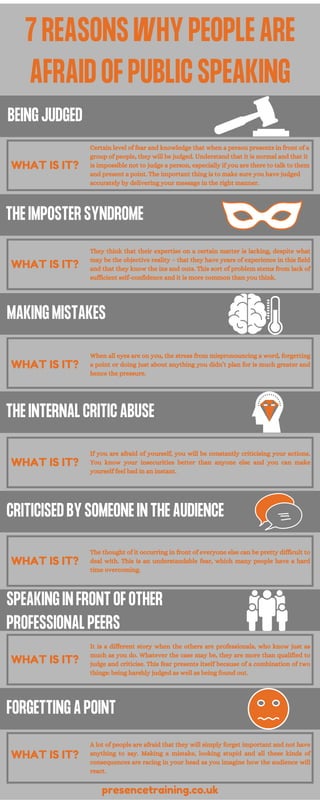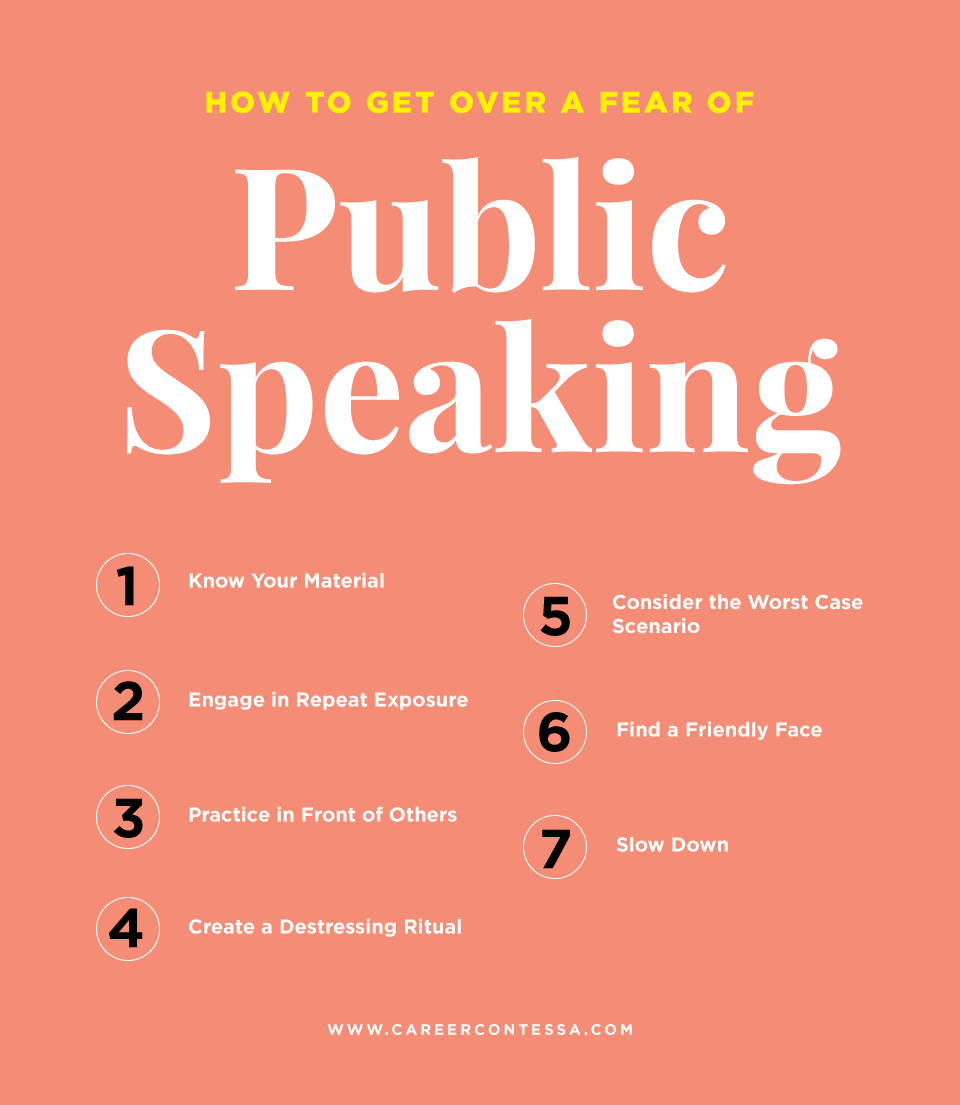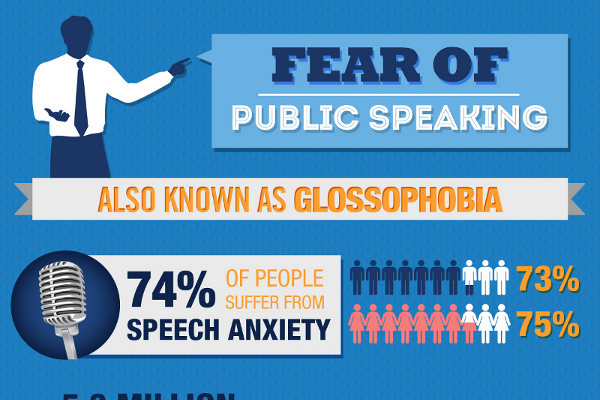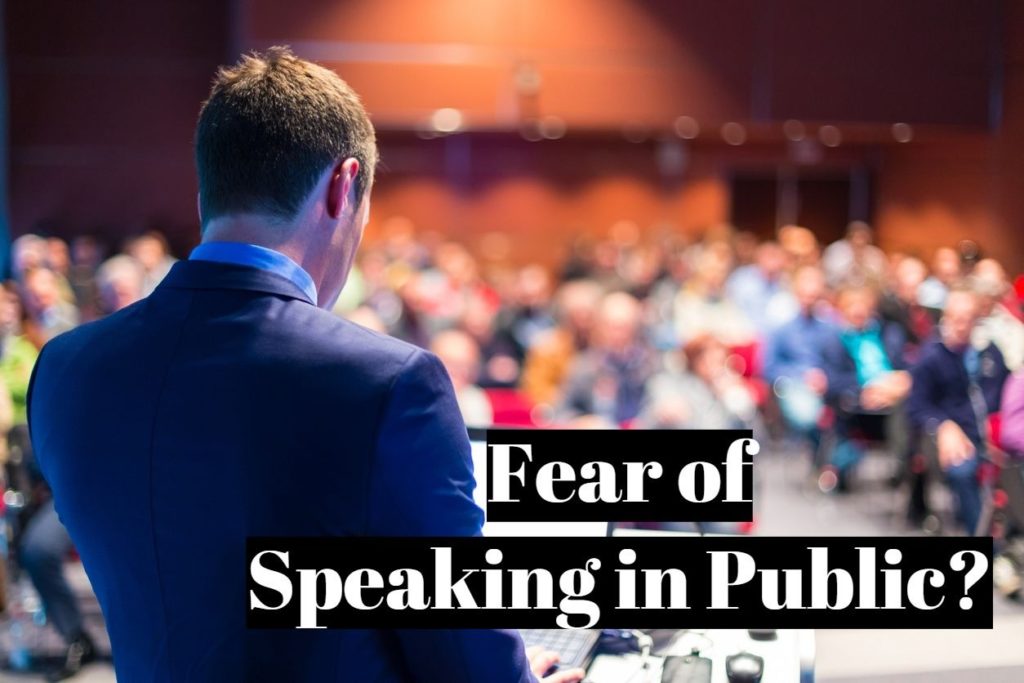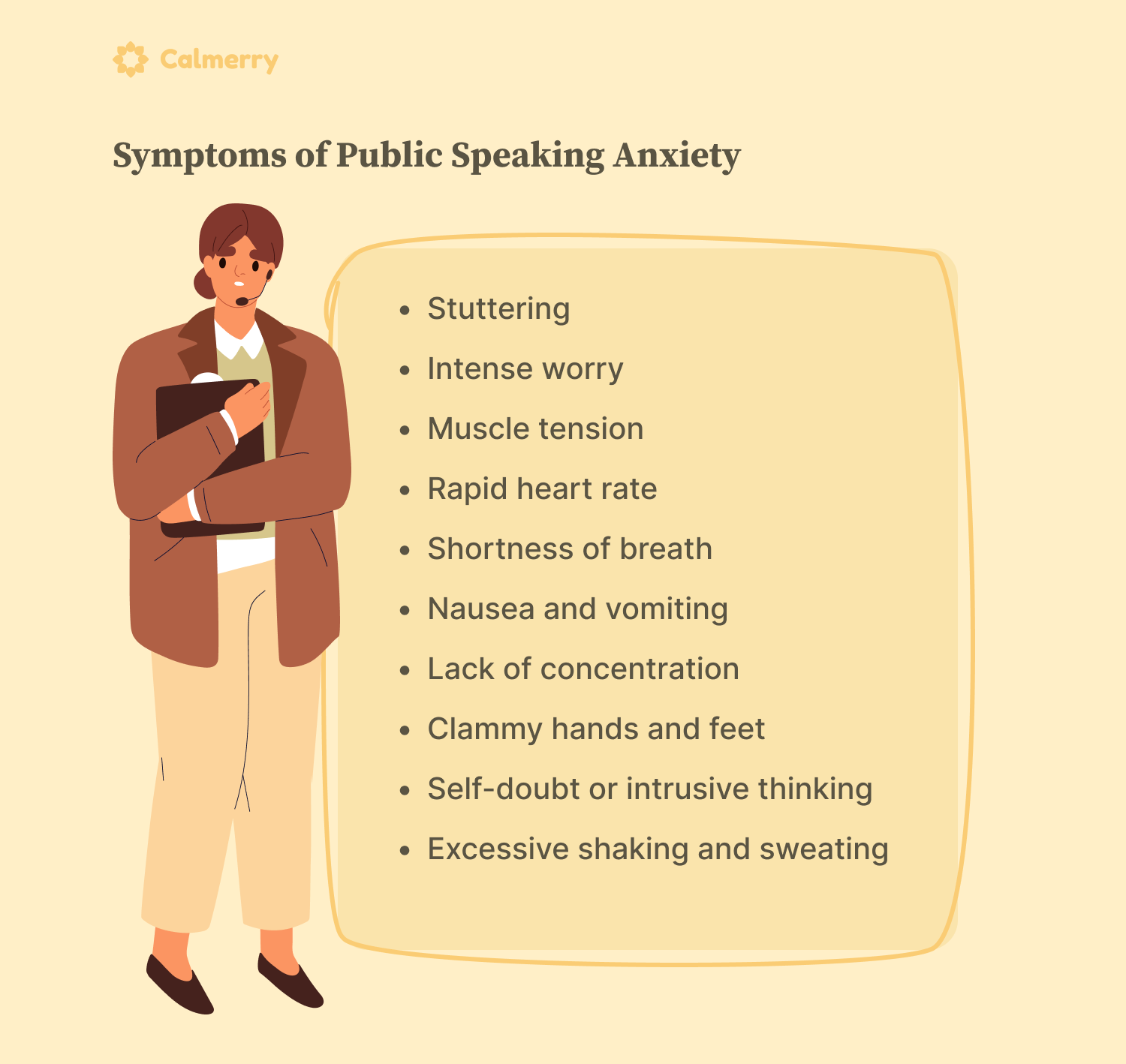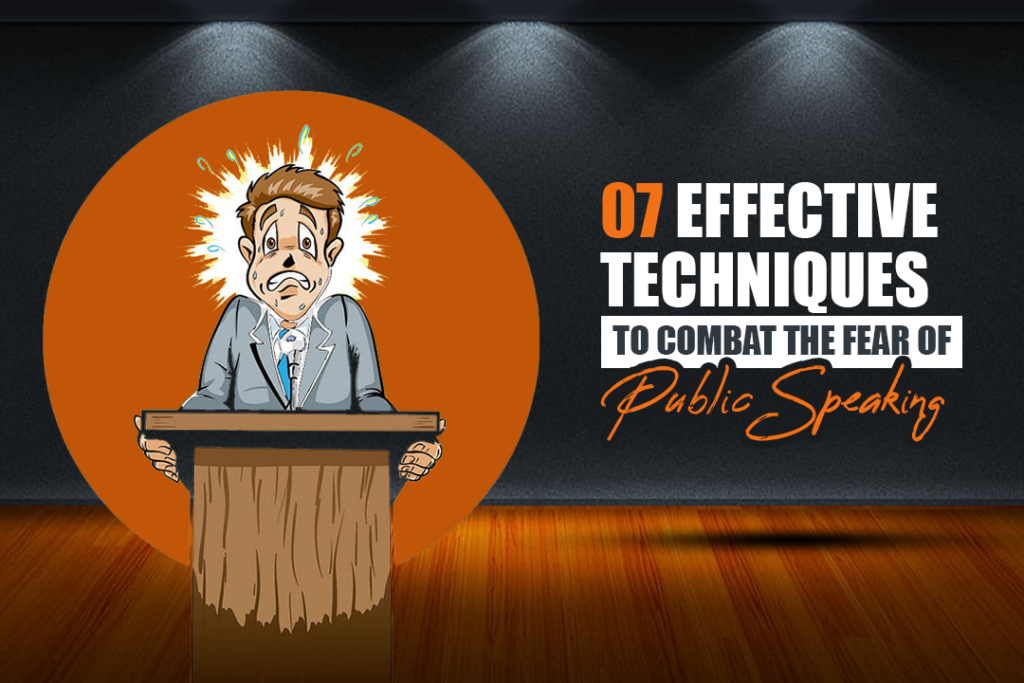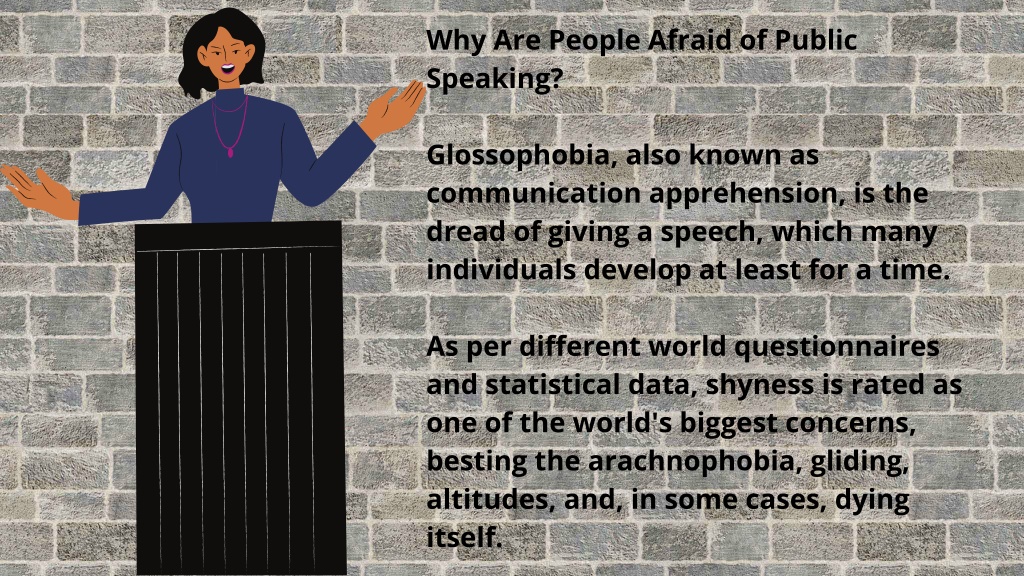Why Are People Afraid Of Public Speaking
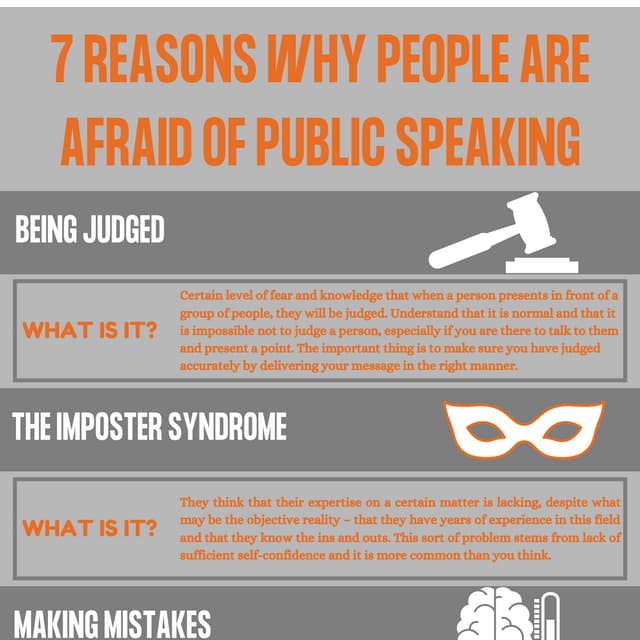
The mere thought of standing before an audience, delivering a speech, or even participating in a meeting can induce feelings of anxiety and dread for a significant portion of the population. This fear, known as glossophobia or public speaking anxiety, is a pervasive phenomenon that affects people from all walks of life.
At its core, the fear of public speaking is rooted in deep-seated psychological and physiological responses. Understanding the contributing factors is crucial for both individuals who experience this anxiety and those who seek to help them overcome it.
The Nut Graf: Unpacking the Fear
This article delves into the complex reasons behind why so many people experience fear of public speaking. It explores the psychological underpinnings, physiological responses, and potential strategies for managing and overcoming this common anxiety.
Psychological Factors
Several psychological factors contribute to the fear of public speaking. A primary driver is the fear of judgment or negative evaluation by the audience.
Individuals may worry about appearing foolish, incompetent, or boring, leading to heightened self-consciousness and anxiety.
Perfectionism also plays a role, as people often set unrealistic expectations for their performance, increasing the pressure and likelihood of experiencing anxiety.
Physiological Responses
The fear of public speaking triggers the body's fight-or-flight response, resulting in a cascade of physiological changes. These changes can include increased heart rate, sweating, trembling, and rapid breathing.
These physical symptoms can further exacerbate anxiety, creating a vicious cycle of fear and discomfort. The release of adrenaline and cortisol contributes to these physiological responses, preparing the body to react to a perceived threat.
Social Anxiety and Public Speaking
Social anxiety, a broader condition characterized by excessive worry and self-consciousness in social situations, is closely linked to the fear of public speaking. Individuals with social anxiety may be particularly sensitive to potential criticism or embarrassment, making public speaking a highly anxiety-provoking experience.
According to the Anxiety & Depression Association of America (ADAA), social anxiety disorder affects an estimated 15 million American adults. For many, public speaking represents a significant trigger for their anxiety.
Past Experiences and Learned Behaviors
Negative past experiences with public speaking can contribute to a lasting fear. A humiliating or embarrassing incident during a previous presentation can create a conditioned response, leading to anticipatory anxiety in future speaking situations.
Moreover, learned behaviors from family members or peers can influence an individual's perception of public speaking. If someone grows up in an environment where public speaking is viewed as a stressful or daunting task, they may internalize those beliefs.
The Impact of Technology
Interestingly, the rise of technology and virtual communication has, for some, paradoxically increased the fear of in-person public speaking. While virtual platforms may offer a sense of distance and control, they can also limit opportunities to develop and hone in-person communication skills.
This can lead to increased anxiety when individuals are faced with the challenge of presenting in a live, face-to-face setting. The perceived lack of control over the environment and audience feedback can further amplify this anxiety.
Overcoming the Fear: Strategies and Solutions
Fortunately, the fear of public speaking is a manageable condition. Various strategies and techniques can help individuals overcome their anxiety and become more confident speakers.
These include practicing and preparing thoroughly, using relaxation techniques such as deep breathing and mindfulness, and seeking professional help from therapists or coaches specializing in public speaking anxiety.
Cognitive behavioral therapy (CBT) is often effective in addressing the underlying negative thoughts and beliefs that contribute to the fear.
Human Interest: A Personal Story
"I used to avoid presentations at all costs," says Sarah Miller, a marketing professional. "The thought of standing in front of a group made my heart race and my palms sweat. I finally decided to seek help, and through therapy and practice, I've learned to manage my anxiety and even enjoy public speaking."
Sarah's story highlights the possibility of overcoming this fear with the right support and strategies. Many resources and support groups are available to help people manage their anxiety and develop their public speaking skills.
The fear of public speaking is a common challenge, but it doesn't have to be a barrier to success. By understanding the underlying causes and utilizing effective strategies, individuals can conquer their anxiety and unlock their potential as confident and engaging speakers.
